Jethro Tull - Interview Part 1
by Lisa Torem
published: 29 / 4 / 2010
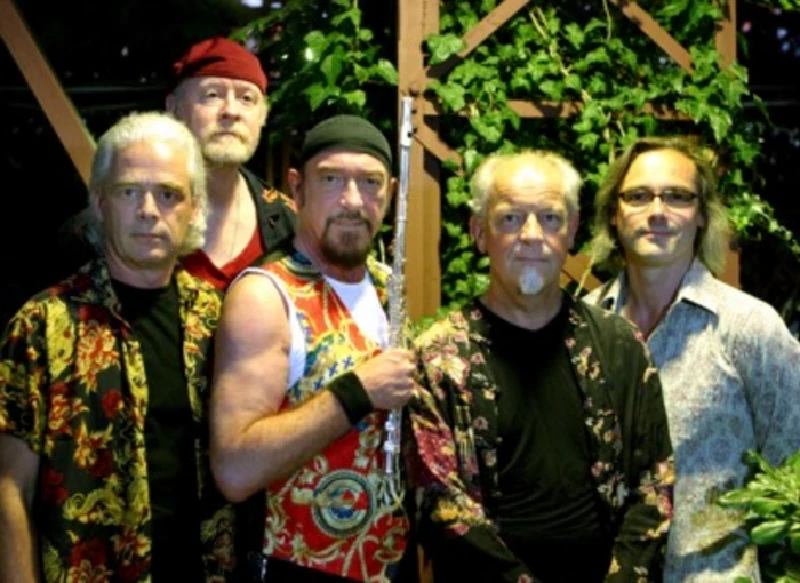
intro
In the first part of a two part interview, both parts of which we are running consecutively, Ian Anderson from prog rock act takes about the influences of both English countryside and Indian culture on his music
Although Jethro Tull front man and flutist/multi-instrumentalist Ian Anderson has no interest in becoming a film icon, his often misinterpreted antics would dazzle and inspire any cinematographer. For example, there was the night when prog rock act Tull received a Grammy award for the Hard Rock Heavy Metal category; an ironic event in which the group was pitted against Metallica. The evening of the awards, Anderson worked feverishly away recording (his label: Chrysalis Records couldn’t afford to send him to the ceremony and doubted the band would even win – after all, ‘Heavy Metal’ was not the genre description Jethro Tull or fans of either band would have used to identify the nominated music), unaware of the evening’s outcome. Then, there was the controversy which resulted when a reporter described Anderson as a flute-player performing on one-leg, although Anderson was merely trying to re- arrange his microphone in dim light. (Subsequent reports compared the multi-talented performer to Krishna; an observation not always well-received by devotees). Furthermore, despite the ambiguity spurred by Anderson’s often flagrant lyrics (“My God, what have you done, made a fool or everyone.”) and his charismatic performances, this feline afficionado has always landed on his two feet. In fact, the Dunfermline, Fife native, has often waxed poetic and paid musical tribute to God’s most mysterious creatures; ‘Old Black Cat’ and ‘Rupi’s Dance’ were both tributes. That said, both musically and in “real life,” Anderson is passionate about the plight of Britain’s only remaining wild feline, the Scottish wildcat. Jethro Tull’s discography was revisited in 1993’s 25th Anniversary album of Tull’s hits which included the psychedelic ‘Beggar’s Farm’, the introspective ‘Wond’ring Aloud’ and the jarringly metered, but optimistic ‘Skating Away on the Ice of a New Day.’ An unbridled perfectionist, Anderson painstakingly provided the original studio tracks on guitar, percussion and vocals, before adding the band, for ‘Locomotive Breath’. Putting the flute on a rock pedestal, Anderson performed this song’s breathy improvised passages as dynamically live, during hundreds of concerts, as on that initial track. Other eye-opening favorites included dark character portraits from 'Aqualung' about streetwalker ‘Cross-Eyed Mary’ and the lecherous, but somehow universally accepted (inspired by pictures of homeless men) protagonist of this 1971 classic. Furthermore, Anderson has done more to propel the flute into the rock oeuvre, than the mythological 'Mother Goose' has done to popularize bedtime stories. And, speaking of ‘Mother Goose’, I’m anxious to get a hold of neurologist Oliver Sacks, the author of “The Man Who Mistook His Wife for a Hat' Sacks cured a patient who complained of hearing Irish Jigs repeatedly in her head. Personally, I’ve been facing a similar quandary –feeling completely enraptured by this song for the past three weeks. It’s possibly that all-consuming drone that languishes through out each verse, like an escalating Saharan wind storm, the endearing way Anderson sings along with the melodic line, that superbly spun intricate instrumental hook or the playful references to Piccadilly Circus that make this song unforgettable. However, until Sacks conjures up a cure, I’m deliriously happy to be “living in the past” and honoring the future with Anderson, whether he’s standing on one leg playing ‘Bouree’ or landing firmly on both, like his whimsical musel 'Rupi'. ‘Wond’ring Aloud’ with Ian Anderson, via telephone from his residence in the UK, was captivating. Anderson is confident in his opinions, quick-witted and refreshingly introspective. This dynamic, prolific and articulate performer is awash with wisdom and, even after having enjoyed four decades of success, remains ambitious, in a field so often filled with fallen heroes and uncertainty. PB: Let’s talk about the influence of the countryside of England, and perhaps growing up in Scotland, as many of your songs specifically reference your physical surroundings such as ‘Jack-in-the-Green’ or ‘Dun Ringill.’ IA: That’s correct. Of course, there’s always a ring of credibility when instinctively people know that someone who is writing prose or poetry or song lyrics is writing from something that is a personal experience, something that is actually really a regular feature of life as opposed to making it up. I think that’s probably good advice to any aspiring author. For your first novel, write about something you know. Write about something you really understand, something really close to your heart and a result of your own experiences and observations. I think that that applies throughout - that it’s a good idea to keep drawing from the things around you. So, songs like ‘Dun Ringill’ basically are about the ruins of an old hillside in the Isle of Skye, off the west coast of Scotland, where Nordic invaders would have landed to pillage and plunder and the local folk would have hidden the women and children and the sheep under fortifications. ‘Jack-in-the-Green’ is a sort of folk-lore material that’s actually from England, but there are parallels in other parts of the world, too, providing God of Fertility, if you like. It's rather benign, not too grandiose. But, it’s stuff that you learn about particularly at this time of the year. I walk in the grounds and the garden where I live in England, and the green has been at work, in preparation; the leaves and everything is in bud – it’s beginning to form on trees. It’s part of life, part of nature, and a song that I’m performing, for the first time at the end of this week, a new song which is about a hare (a kind of animal with bigger ears and a bigger body), one of those which came into our garden and obviously decided it was a safe refuge. Unfortunately, [it was] unaware at the time that we had a savage terrier. PB: You enjoy writing about what we call “Mother Nature.” IA: The thing that I’m not really good at writing is songs that have to do with personal relationships, which I always think, ultimately, are a little sacred and not something that you do want to be literal about – plunder for song material. I think that’s a betrayal that I find worrying, although there have been a few consequential meanderings in that general area in the early days of my songwriting, i.e. the first few months. It’s not an area that I choose to visit much in the subsequent years and I’m more likely to visit the topic in a slightly more detached observational way if I do it at all. I’m more of an observer. I like to see things and people and circumstances. PB: Ian, can you tell me how often during the day something in your surroundings inspires you to write a lyric? IA: Consciously, probably once or twice. But, subconsciously I suspect rather more as you’re storing away little snippets from visual and verbal stirrings from television and radio and conversations. Yes, it does happen, but I think consciously there are probably some days when it doesn’t happen at all. You just don’t have any thought of connecting something you’ve seen or done. You could put yourself in that more creative state of mind. I’m going to be receptive and positively invite that kind of input. PB: In previous interviews, Ian, you had mentioned the drone in Indian music, also found in bagpipes or maybe Celtic music, which is hypnotic; very seductive. At what point did you make that connection between these two types of music? Also, what are your feelings about India as a culture? IA: It goes back to the pre-Jethro Tull band – the John Evan Band. I had an Indian drummer by the name of Richie Dharma who lived in Manchester with his parents and his mother was Indian and my first introduction to Indian cooking was at Richie Dharma’s carry-out curry lunchtime – where we were going off to play and, around that time, in the mid to late 60's, there was a growing number of Indian, Pakistani, Bangladeshi restaurants appearing, not the 10000 that we have today – 8000 which were really Bangladeshi – not Indian. I had an introduction to not only the fast-food Indian cuisine, but also the music of India, because it was being played while you ate, and so Indian music was something, by the age of 18 on, I heard regularly. But, there was also, back then, the beginnings of some fusion formed – one particular piece called:’ Indo-Jazz Fusions’ which was quite – I’m not sure how famous it was, but it seemed to be quite a well-known piece, written by John Mayer back in the mid 60s. It was indeed a long time ago. PB; It sounds like ‘Indo-Jazz Fusions’ led you in a new direction. IA: It was something that I heard a little about and was aware of, so that I heard much of it because I couldn’t have afforded to buy it, but it was something out and about and we definitely heard back then. It was one of those records that started to bring together elements of Indian and western music, and of course, Indian music contains a lot of improvisation and therein lies a link. The actual way in which different scales are employed in Indian music – the “raga” - the scale in which you say these are the notes we’re going to choose to play from - a given piece of music in a given key. It feels like a great and rather restrictive force. A jazz musician brought up in the be-bop era, where there were fairly standardized progressions of chords formed the basis of improvisation. So, [it was] possibly quite restrictive to be anchored around one on- going tonality for anything up to an hour; the length of Indian music. For me, when I wrote some music for Anoushka Shankar, I was pushed to try to learn and understand as much as I could about sitar music – how the sitar physically was played, how it could deal with some of the nuances that we could actually sneak in to get some chordal progressions and some harmonic development to the music, without it providing too much anxiety for the Indian player. Hariprasad Chaurasia - he was very uneasy if you moved to another chord – even if it was a related chord. He would allow himself to play the notes in the normal scale of the flute that he was playing, but it made him quite uneasy when you’d do that. We’d do it to him, and you could see him be all at sea, and we’d have to say, “Now look, just carry on playing. It will work, trust us.” I know Anoushka would say the same thing when we would put something to a different key. It was like, I suppose, the feeling of riding a bicycle when suddenly someone’s taking away the stabilizing wheels and realizing you could actually keep going (laughs).You just have to trust to your fellow musician that they were going to catch you if you fell. PB: You originally had an interest in the visual arts. Do you have a desire to have your life story in film? IA: No, I certainly don’t. I’ve never really been – once or twice – I’ve been asked to appear or participate in a stage production or in a movie as an actor. But, I’m not an actor. It’s not something that I feel I would possibly want to get involved in and do badly. You really have to study that stuff. My son-in-law’s an actor. He’s spent years learning his craft and honing his skills and he still has to do a screen test if he’s up for a major part in a film or TV. And I would find all that rather harrowing (Laughs) indeed. But, it’s not something that I would want to do and when it comes to writing music for movies or TV, it’s not something that I’m particularly moved to do because you really – because first of all, when you agree to do that, you’re invariably brought in, at the very last minute, to wave a magic wand and produce some music which happens to fit the nature of the production whatever it might be. But you are going to sit there and look at the screen; starting and stopping and reiterating, developing pretty much as a slave, to the director’s whim as to where he wants music, and indeed, what kind of music he wants and where he wants it. This is a different kind of a jobbing approach to music that I don’t really feel instinctively, simply because I’m a free agent. I don’t like to be hampered by the music merely being an aural wallpaper behind a primarily visual event. I’m not really keen on that.
Band Links:-
https://www.facebook.com/officialjethrotull/http://jethrotull.com/
https://twitter.com/jethrotull
https://www.youtube.com/user/tullmanagement
https://plus.google.com/113277960811145993816
https://www.instagram.com/jethrotull_/
Picture Gallery:-
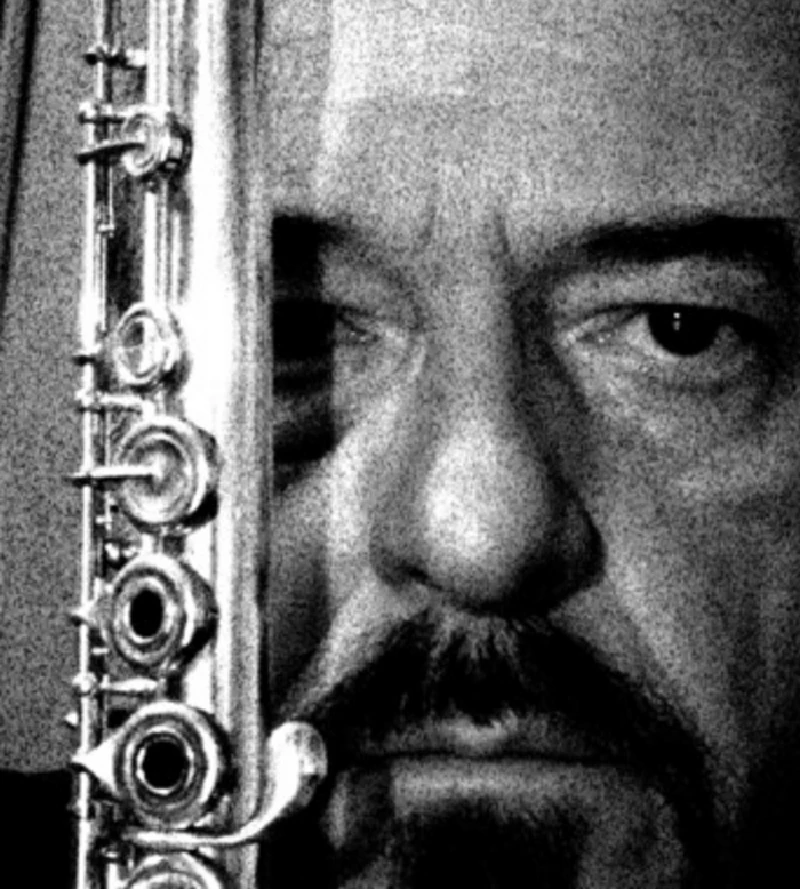
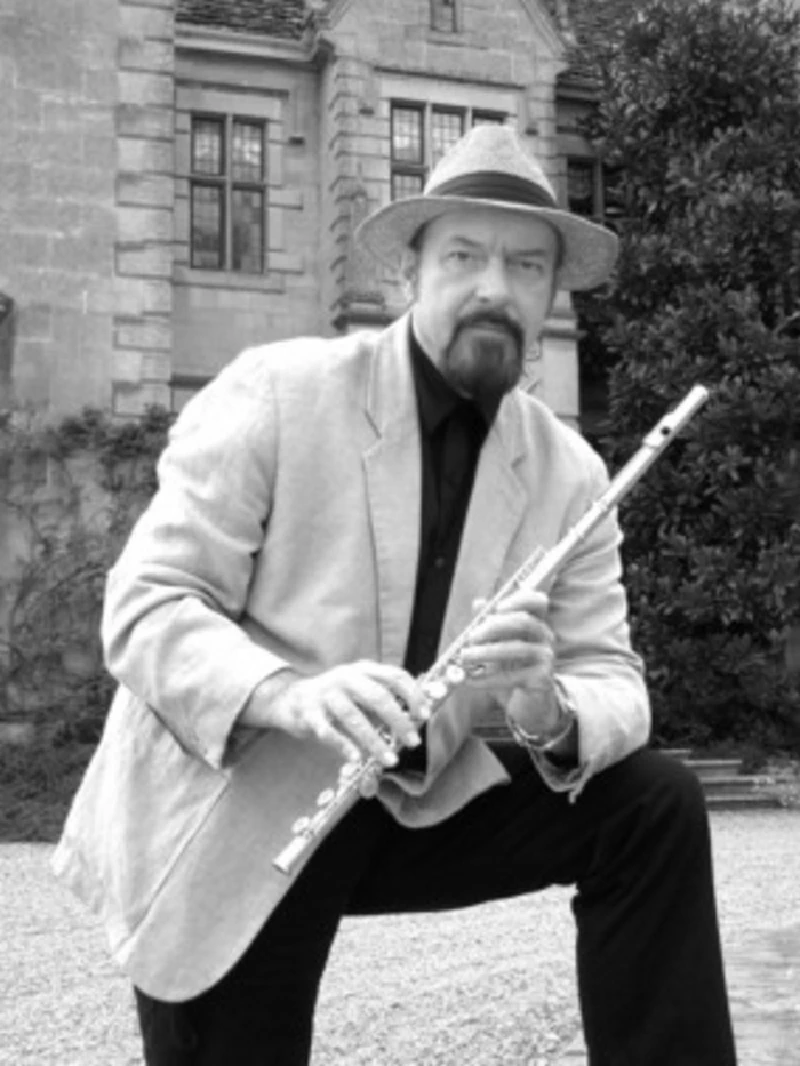

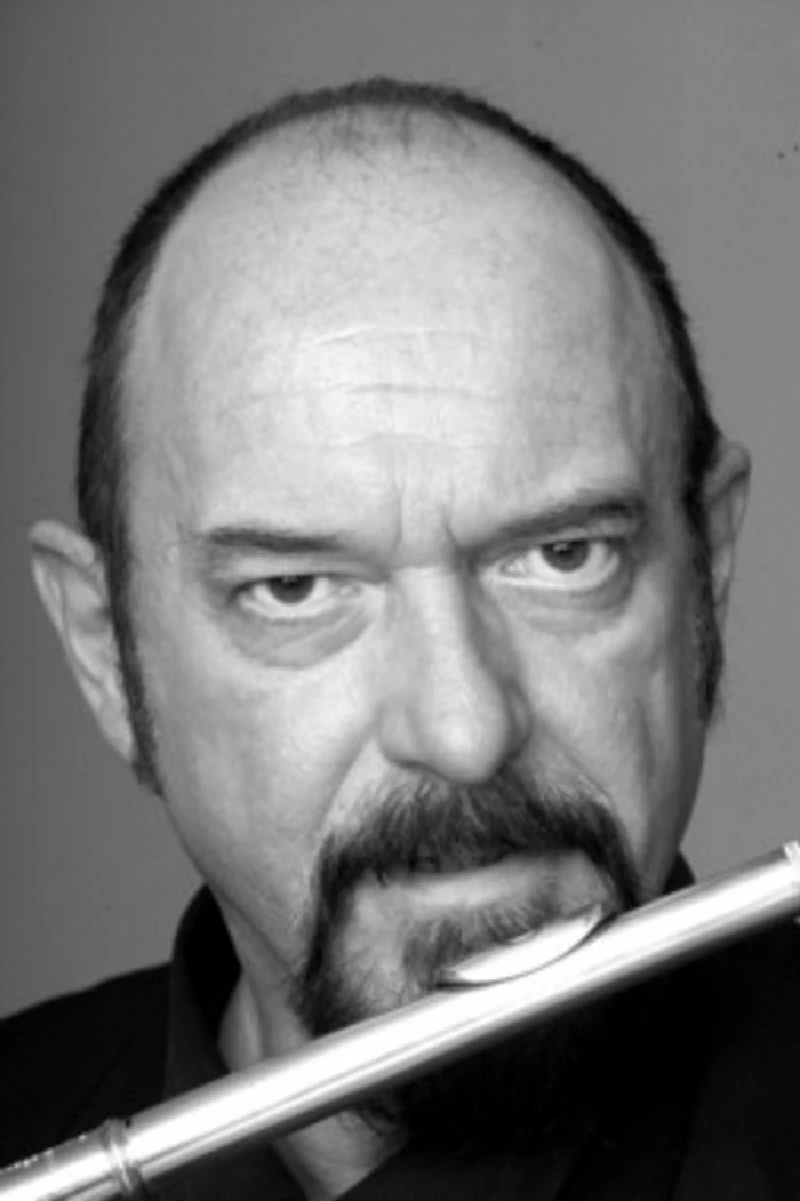
Visitor Comments:- |
| 859 Posted By: Ken, Crewe England on 12 Apr 2018 |
|
Richie Dharma's family home was in Walkden in Lancashire (Now part of Salford). His family came from Ceylon (Sri Lanka) and not India. Any time night or day his mother always had a couple of pots of curry on the go. I believe the band was called John Evan Smash when Richie played drums for them.
|
| 797 Posted By: lisa, chicago on 31 Mar 2016 |
|
Thank you for the kind words, Bruce.
Ian has so much global awareness, doesn't he? He has brought us all closer together by drawing from all corners of the world. And 'Fat Man' is a good one!
Lisa
Hi Branimir,
I stand corrected. You are absolutely right about Joe Harriott and John Mayer. It should be fixed before you reach for your morning coffee tomorrow. But let's not forget that John Mayall rocks, too! Thanks for reading.
Lisa
|
| 794 Posted By: Bruce L., Palo Alto, CA, USA on 30 Mar 2016 |
|
Great interview. I did not know Ian was so familiar with Indian or
?? middle eastern music. The first song I heard that got my toe
really tapping was "Fat Man" which is a great song with a lot of
energy. There are such rousing versions of that on the web today,
it is really amazing. Thanks.
|
| 619 Posted By: Branimir Prelosnjak, NY, USA on 16 May 2013 |
|
http://www.allmusic.com/album/indo-jazz-suite-indo-jazz-fusions-mw0001059320
Joe Harriott and John Mayer, not John Mayall. Maybe Anderson misspoke, or someone misheard? Three years late, but what the heck..
|
| 322 Posted By: COL Batguano, Leesville, LA (USA) on 10 Jul 2010 |
|
Good one from Earl. I've been wondering for several years, or if there will be a new album?
And concerning no desire to do any acting: Can't you just picture him with a role in a Harry Potter movie?
|
| 316 Posted By: Earl Sams, King,NC-USA on 25 Jun 2010 |
|
When will the new Tull disc be released?
|
| 289 Posted By: Lisa, Chicago on 19 May 2010 |
|
Thank you, Kurt.
I'm aware that Ian is a man who really knows a good curry. Perhaps, if we're lucky, he'll write us a song about it.
Lisa
|
| 288 Posted By: Kurt Nighswander, Buffalo, NY (USA) on 18 May 2010 |
|
Very good interview about his relationship to Indian music...not too much curry....
|
interviews |
|
Interview (2018) |
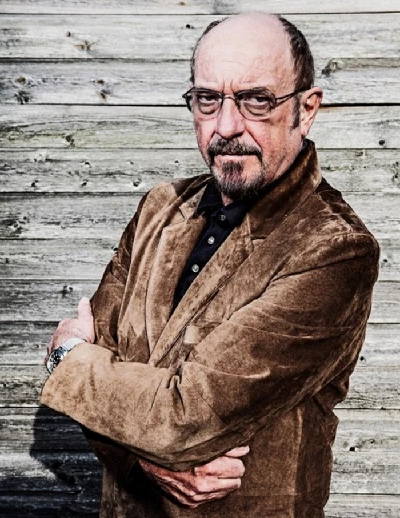
|
| Lisa Torem speaks to Jethro Tull frontman and solo artist Ian Anderson about Jethro Tull's forthcoming 50th Anniversary upcoming UK tour, his favourite autograph and the curse of collaboration. |
| Interview Part 2 (2010) |
live reviews |
|
Ravinia Festival, Highland Park, Illinois, 20/6/2010 |
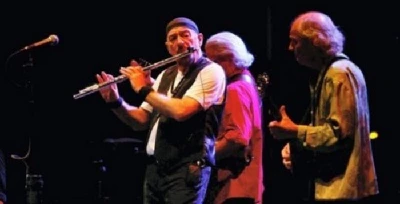
|
| At the Ravinia Festival in Highland Park near Chicago, Lisa Torem watches Jethro Tull play a crowd-pleasing, exuberant set of their best known tracks and songs |
favourite album |
|
Nothing is Easy: Live at the Isle of Wight 1970 (2013) |
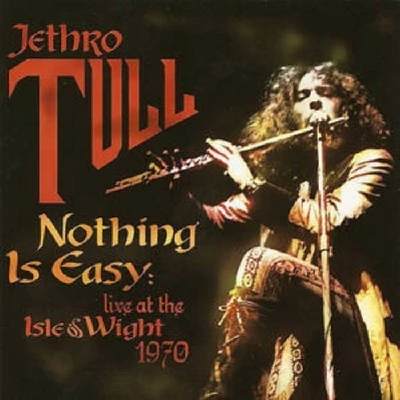
|
| In our 'Re:View' section, in which we look back at albums from the past, Carl Bookstein examines Jethro Tull's live album 'Nothing is Easy: Live at the Isle of Wight 1970', which, originally released in 2004, has just been re-released in a new CD/DVD edition |
| Aqualung (2011) |
soundcloud
reviews |
|
The String Quartets (2017) |
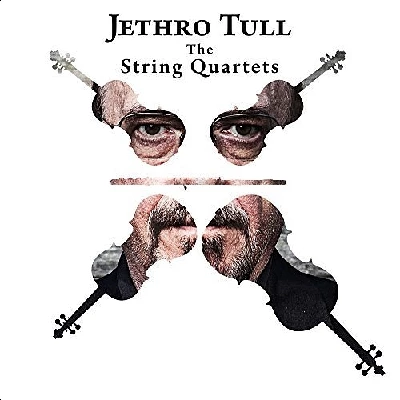
|
| Ian Anderson, John O’Hara and the Carducci Quartet celebrate and reimagine some of Jethro Tull and Anderson’s most beloved original songs in an extraordinary collaboration |
most viewed articles
current edition
Carl Ewens - David Bowie 1964 to 1982 On Track: Every Album, Every SongArmory Show - Interview with Richard Jobson
Colin Blunstone - Thalia Hall, Chicago, 16/7/2025
Visor Fest - Valencia, Spain, 26/9/2025...27/9/2025
Bathers - Photoscapes 1
John McKay - Interview
Loft - Interview
Robert Forster - Interview
Billie Eilish - O2 Arena, London, 10/7/2025
Sir Tim Rice - Interview
previous editions
Heavenly - P.U.N.K. Girl EPManic Street Preachers - (Gig of a Lifetime) Millennium Stadium, Cardiff, December 1999
Beautiful South - Ten Songs That Made Me Love...
Oasis - Oasis, Earl's Court, London, 1995
Pixies - Ten Songs That Made Me Love...
Boomtown Rats - Ten Songs That Made Me Love....
Trudie Myerscough-Harris - Interview
Prolapse - Interview
Peter Perrett - In Dreams Begin Responsibilities Interview Part One
Simon Heavisides - Destiny Stopped Screaming: The Life and Times of Adrian Borland
most viewed reviews
current edition
Amy Macdonald - Is This What You've Been Waiting For?Sick Man of Europe - The Sick Man of Europe
Lucy Spraggan - Other Sides of the Moon
Phew, Erika Kobayashi,, Dieter Moebius - Radium Girls
Davey Woodward - Mumbo in the Jumbo
Alice Cooper - The Revenge of Alice Cooper
Bush - I Beat Loneliness
Suzanne Vega - Flying With Angels
Blueboy - 2
Cynthia Erivo - I Forgive You
related articles |
|
Ian Anderson: Interview (2015 |
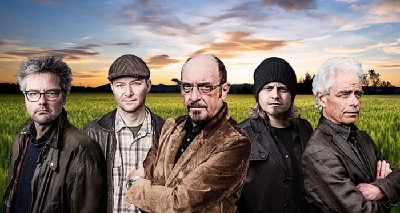
|
| Lisa Torem speaks to multi-instrumentalist and composer Ian Anderson, who is bringing to life the story of namesake and industrialist Jethro Tull in a brand new rock opera |
| Barrie Barlow: Interview (2014) |
| Ian Anderson: Interview (2014) |
Pennyblackmusic Regular Contributors
Adrian Janes
Amanda J. Window
Andrew Twambley
Anthony Dhanendran
Benjamin Howarth
Cila Warncke
Daniel Cressey
Darren Aston
Dastardly
Dave Goodwin
Denzil Watson
Dominic B. Simpson
Eoghan Lyng
Fiona Hutchings
Harry Sherriff
Helen Tipping
Jamie Rowland
John Clarkson
Julie Cruickshank
Kimberly Bright
Lisa Torem
Maarten Schiethart